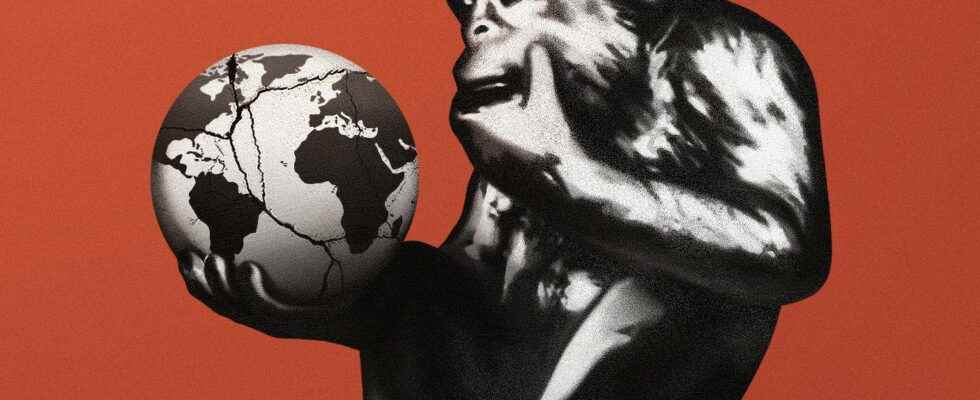Creationism
Doctrine according to which God would have created each of the living species, in opposition to the scientific consensus on the theory of evolution. Creationism is often carried by fundamentalist readings of the sacred texts of monotheistic religions. Neo-creationism tries to present these beliefs in a more scientific light, like the theory of “intelligent design” developed since the 1980s. Proponents of this thesis accept the principle of evolution, but believe that this must inevitably lead to man. Our presence on Earth would therefore have been programmed by a “divine design”, which goes against the foundations of the theory of evolution, based on the principles of chance and natural selection.
Evolution
From the point of view of biology, evolution is the transformation of the living world over time. This has led to a diversification of life, which can be described in the form of evolutionary trees. Charles Darwin explained the evolution of species by the game of natural selection, that is to say that the individuals best adapted to their environment reproduce more than the others. Neo-Darwinism completed its theory by integrating Mendel’s laws (heredity principles) and population genetics.
Gender
“Gender identity” is a person’s psychological sense of being feminine or masculine. In 95% to 99% of cases, an individual’s gender corresponds to their biological sex. In other cases, the disconnection between sex and gender is called gender dysphoria, either because the individual identifies with the other sex or does not identify with either gender. To go from one gender to another is to be “transgender”.
intersex
Representing approximately 1% of the population, intersex people have sex characteristics (chromosomes, hormones, genitals) that do not correspond to standard definitions of female or male bodies. For example, they may have atypical genitalia or hormone production, or more than two sex chromosomes.
Masculinism
Reactionary ideology promoting the domination of men over women, in reaction to feminism and advances in gender equality. This current in particular diverts scientific knowledge on the biological differences between men and women, in an attempt to justify a superiority of the former over the latter.
Traditional medicine
Set of knowledge and practices in health, acquired throughout their history by populations. They may involve the use of plants, manual techniques or spiritual therapies. Because of their age, these methods have pseudoscientific foundations, like traditional Chinese medicine, which is based on the Taoist philosophy of the balance between two vital forces, yin and yang. Some followers try to place these disciplines on the same level as modern scientific medicine, supposed in their eyes to represent only “Western” knowledge.
Breed
By analogy with breeds of livestock, scientists and intellectuals have attempted to establish classifications within the human species, according to morphological or cultural criteria. With his Essay on the inequality of human races (1853), the writer Arthur de Gobineau popularized this racialist current. Since the 1950s, Unesco has recommended the use of the term “ethnic group”, which emphasizes the cultural dimensions. On the scientific level, the notion of “race” has been totally delegitimized. If genetic research confirms small differences between human populations according to their geographical origins, it also shows great variability even within these groups, due to permanent mixing. Descended from a common ancestor, human beings are 99.9% genetically similar.
Sex
In humans, binary categorization of individuals between “males” and “females”, allowing the reproduction of the species. Both sexes are characterized by genetic, hormonal and anatomical differences.
